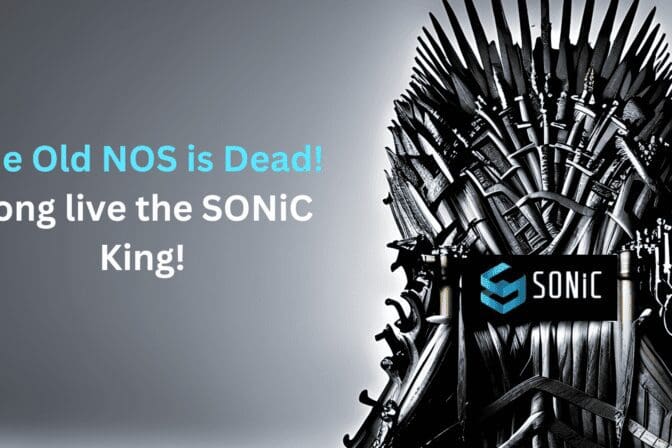What happened to the trailblazers in SDN?
The software-defined networking (SDN) craze began with the promise of a disaggregated Network Operating System (NOS). The ability to have hardware and silicon diversity, with carrier-class network performance and resiliency, took flight.
Vyatta, Pica8, Pluribus, and Cumulus are some of the companies that emerged when SDN was new, and OpenFlow and OpenStack were all the rage.
SDN attempts to reshape the Intersection between NetOPs and DevOPs

Programmatic capabilities and command-line interfaces (CLIs) are becoming increasingly popular. The network and its infrastructure are being influenced by the DevOps movement and are transitioning to an “as code” approach.
As infrastructure starts to virtualize, DevOps teams are building overlays for their own rapid service expansion on top of the existing network. This has led to the creation of VXLAN. The worlds of NetOps and DevOps have collided as a result of this trend.

Ring a bell?
Now, let’s talk about the fate of those NOS players…
- Vyatta – Acquired.
- Pica8 – Receivership. Assets Acquired. Best of luck.
- Pluribus – Acquired. Your sole hardware choice.
- Cumulus – Acquired. Broadcom support discontinued. A familiar tale, just like Pluribus.
Shifting Tides in the NOS Space: The Evolution and Future of SONiC with Microsoft and the Linux Foundation
SONiC, alternatively known as Azure Software for Open Networking in the Cloud (SONiC), a cross between NetOps and DevOps, SONiC emerged unexpectedly from the heart of Microsoft, a source that might have been the least anticipated.
Thank you to the Microsoft Azure team! 🙂
Microsoft has handed over the development of SONiC to the Linux Foundation and Open Compute Platform (OCP). This move ensures that SONiC will remain open-source and will not be acquired or end-of-lifed. Ever.
The Linux Foundation will focus on the software component of SONiC and will work with OCP to align hardware and specifications like SAI.
SONiC’s Rise to Dominance: Navigating the Competitive Landscape of Disaggregated NOS in the Network Market
Initially, there were some reservations about SONiC; however, it has since become a dominant force powering many platforms, including Azure, Google, and META, just to name a few. At this point, SONiC momentum is unstoppable!
It seems like the disaggregated Network Operating System (NOS) market has become highly competitive, with some NOS struggling to survive. The market is similar to a game of “NOS Thrones,” where only the most capable NOS will survive and claim market share dominance. This competition is not limited to data centers but also extends to hyperscalers and the edge (both access and the RAN/ORAN Cell Site).
How to address the rapidly changing and disappearing NOS space with a long term solution?
According to a report by 650 Group, the worldwide market for SONiC in data center switching is expected to exceed $4 billion in revenue by 2025. The report also suggests that SONiC’s role outside of hyperscalers will increase during the forecast period.
The big technology conglomerate like Cisco has adopted SONiC on their 8000 series hardware and has partnered with Aviz Networks to support it for their customers. It is predicted that SONiC will have a market share of 40% by 2025, which is second only to Cisco.
So the question is not “What do I do?”, but as Nick Fury would say, “What are you prepared to do?”! Let’s discuss the most effective solution to the Cumulus Broadcom problem and other disappearing NOS.
You can either choose:
a) Another NOS that can perform the required tasks with some degree of uncertainty.
or
b) Opt for a more reliable alternative that includes Management, Automation, Orchestration, AND Observability, along with Support for the NOS in one package that can go the distance, such as Aviz with SONiC.
From Setbacks to Success: Embracing Aviz Networks + SONiC for Trustworthy NOS Solutions
Hear ye, Hear ye, The old NOS are Dead! Long Live The SONiC King!

I invite you to join me for a unique blog series.
You may recall my previous episodes in the Pica8 NOS land, where the receivership left customers in the lurch for months. I lived through it, and that Pica8 sting is still fresh. Similarly, Cumulus left a sting that still burns.
Let’s turn that burn into a raging success! How do you regain trust after a bad situation? The same way you always do. Get on top of a better solution! The better, future-proof solution is Aviz Networks + SONiC.

I’ve gained invaluable insights, and from my experience, I can attest it’s never too late to make the right choice.
Join me in this Blog Series and my exciting journey into Digital Transformation with SONiC at Aviz Networks.
Discover the superpowers you never knew you had, simplifying and rapidly integrating SONiC into your ecosystem, whether you’re dealing with HyperScalers or others!
Let me take you on the adventure that will supercharge your digital transformation into a performance-driven, budget-saving, AI-powered machine, all on a smaller budget. We will show you how to do more with less. Stay tuned for Episode 2! 😊


